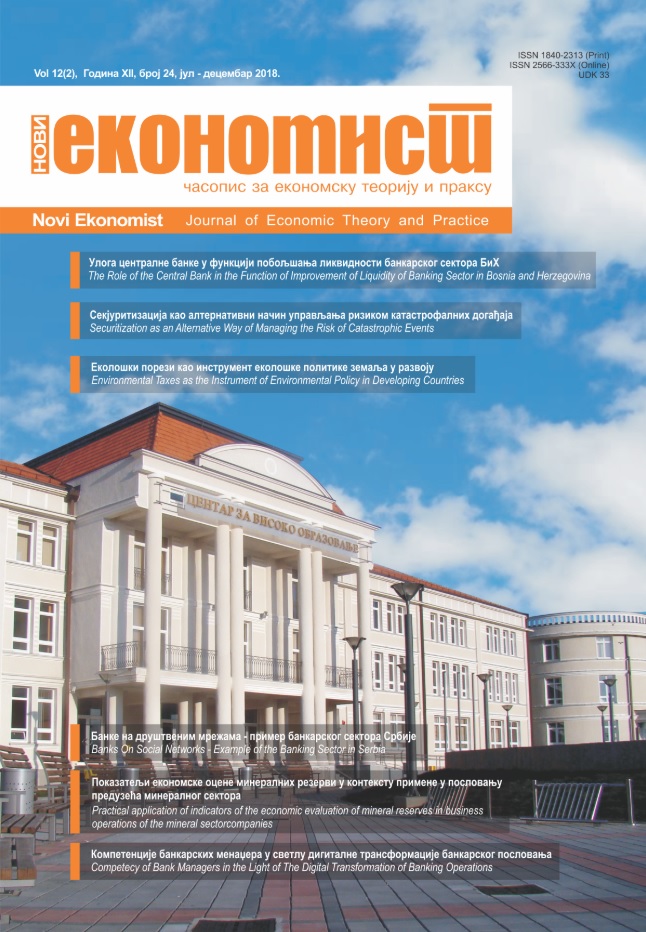STRATEGY FOR MANAGING BANKING SYSTEMS IN CENTRAL AND EASTERN EUROPE COUNTRIES UNDER GLOBALIZATION
DOI:
https://doi.org/10.7251/NOEEN2027043VAbstract
The financial crisis has adversely affected all the countries of the world in the conditions of globalization with different intensity, no matter if it is higher or lower level of development and different economic structures. In the context of globalization in the countries in transition, the banking system was reformed, thus creating a new financial market. The International Monetary Fund has taken an active part in the transition process of Eastern European countries by providing advice and approving financial arrangements. Developed countries of the world have implemented measures of non-standard monetary policy to overcome the global financial crisis. In some parts of Central and Eastern Europe, in addition to the general corporate identity (bank name, abbreviated name, trademark and slogan of the bank), the countries also applied qualitative features of the bank's corporate identity (image, reputation and goodwill). As they enter the 21st century, banks in developed countries are increasingly emphasizing the corporate culture and style of business of the bank. In the practice of banks, the following performances are most often present: financial, marketing, performance management, employee performance, business philosophy, reputation and the image of the bank. The banks' performance analysis included 13
Central and Eastern European countries divided into three groups. Performance over the period 2008-2018 is analyzed, related to: share of total assets in GDP, share of total loans in GDP, share of total deposit in GDP and level of capital adequacy of Central and Eastern European countries. The analysis shows that the central banks of the countries of Central Europe are dominant, and that in certain performances they are approached by the banks of the countries of Eastern Europe (members of the European Union and the Western Balkans).

